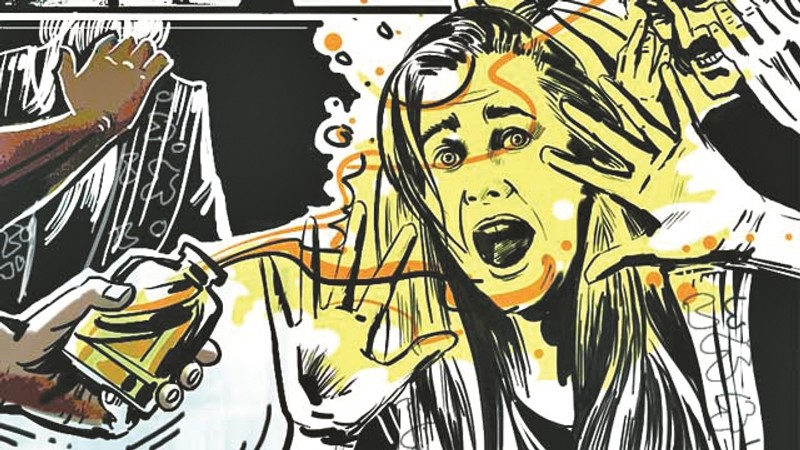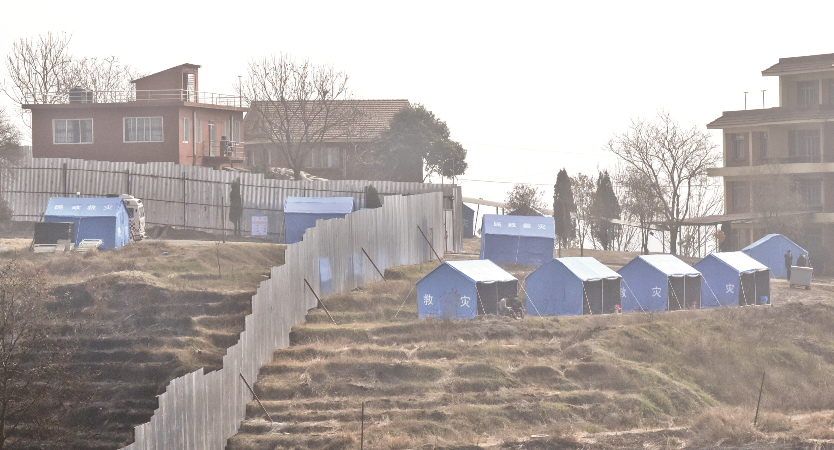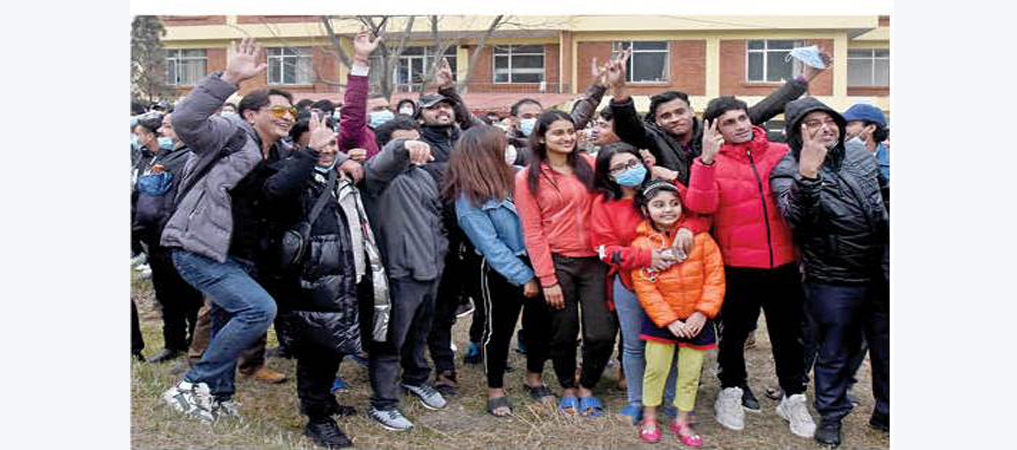Legislation on acid attack inadequate

Sampada Anuranjanee Khatiwada
It is an uphill battle for acid attack survivors to be rehabilitated in society, recently released Deepika Padukone starring movie ‘Chapaak’ depicts this message.
The movie successfully portrays how the society humiliates, makes fun of and isolates burn violence survivors.
Based on a real life story of Laxmi Agarwal, 29, an Indian acid attack survivor, the movie mirrors Agarwal’s fight with the Indian judicial system and Indian government to regulate the selling of acids.
After her case, the gravity of punishment for perpetrators in cases of acid attacks has increased in the Indian Penal Code (IPC) 1860.
Nepal has also witnessed plenty of cases where women, especially young girls are attacked with acid.
For an instance, in 2015, Sangita Magar, along with her friend Seema Basnet were hurled with acid at Basantapur while they were preparing for their School Leaving Certificate (SLC) examination.
Magar had to undergo multiple surgeries and it took her six months to recover from it.
Although Magar took years to accept the burn scars of her face, the attack provoked her to come out to the society as a fighter.
She had demanded amendment in Nepal’s laws on acid and burn violence. It is from her case that the Supreme Court (SC) directed the government to provide immediate financial aid to those who get attacked by acid or any other toxic substances as such.
Despite Magar's effort on challenging Nepal’s acid attack legislation and bringing about change in it, the SC’s order isn’t being enforced accordingly. The provision of acid attack in the national penal code is petrifying.
The Muluki Criminal (Code) Act, 2074, under section 193 prohibits everyone to cause bodily pain to another person by administering acid or similar kind of other criminal, biological or toxin substance in such a way that it would disfigure the face or any part of the victim’s body.
The punishment that the same section has rendered, however, is alarming. The provision states that any person committing such offence will be liable to imprisonment for a term of 5-8 years and a fine of Rs. 100,000 to Rs. 500,000 in case of disfigurement of face.
Further, in case of disfigurement of any other organ or bodily pain, the perpetrator will be liable to a fine of Rs. 50,000-300,000 and imprisonment for a term of 3-5 years.
The provision fundamentally states that punishment would depend upon the nature of damage the victim has gone through.
Ujjwal Bikram Thapa, a social activist, who advocates for the rights of acid attack survivors, said that the punishment should be given on the basis of intention of the perpetrator and not on the basis of victim's wound.
The perpetrator’s intention in cases of acid attack is to destroy the victim’s life. So the reaction of acid shouldn't determine the retribution, Thapa said.
Stating that Nepali legislation on acid attack was regressive, Thapa said that punishment should be reciprocal to the intention of offender.
“If the offender intends to damage someone for life, s/he should be imprisoned for life,” he said.
If the victim bears less reaction of acid after being attacked, it is because of his/her luck and not because of the intensity of attack. The punishment, therefore, should not depend upon victim’s luck.
Thapa also said that the government should be focusing on rehabilitation of such victims.
“As the acid attack survivors are psychologically damaged, it is vital to rehabilitate them in the society,” he said. “The government should ensure proper rehabilitation and provide employment and other restorative facilities to them, depending upon their competencies.”
Rajan Sharma, a social analyst said that Nepal was highly influenced from India in terms of cases relating to acid attack.
“The cases of acid attack mostly take place in the Terai,” said Sharma. “The government, therefore, should generate awareness everywhere and especially in the Terai region about the damages that the survivors face after being attacked.”
Our society is in utmost need of awareness about do’s and dont’s after being attacked by acid. Both, the government and the private sectors should therefore focus on making people aware about what could possibly be done after being attacked to decrease the reaction of acid or any other toxic substances of such.
Both, Sharma and Thapa demanded for imposing punishment of life imprisonment on those who commit this heinous crime of hurting an innocent for life.
(Sampada is a TRN journalist)
Recent News

Do not make expressions casting dout on election: EC
14 Apr, 2022
CM Bhatta says may New Year 2079 BS inspire positive thinking
14 Apr, 2022
Three new cases, 44 recoveries in 24 hours
14 Apr, 2022
689 climbers of 84 teams so far acquire permits for climbing various peaks this spring season
14 Apr, 2022
How the rising cost of living crisis is impacting Nepal
14 Apr, 2022
US military confirms an interstellar meteor collided with Earth
14 Apr, 2022
Valneva Covid vaccine approved for use in UK
14 Apr, 2022
Chair Prachanda highlights need of unity among Maoist, Communist forces
14 Apr, 2022
Ranbir Kapoor and Alia Bhatt: Bollywood toasts star couple on wedding
14 Apr, 2022
President Bhandari confers decorations (Photo Feature)
14 Apr, 2022










